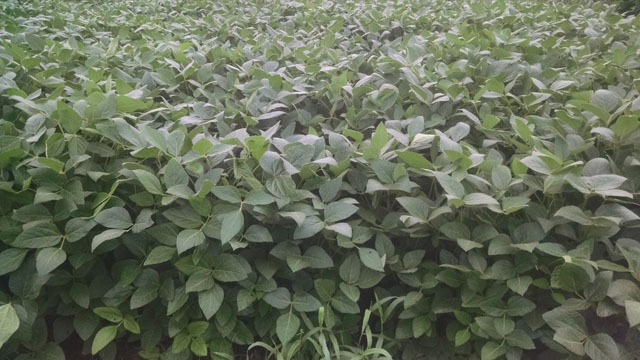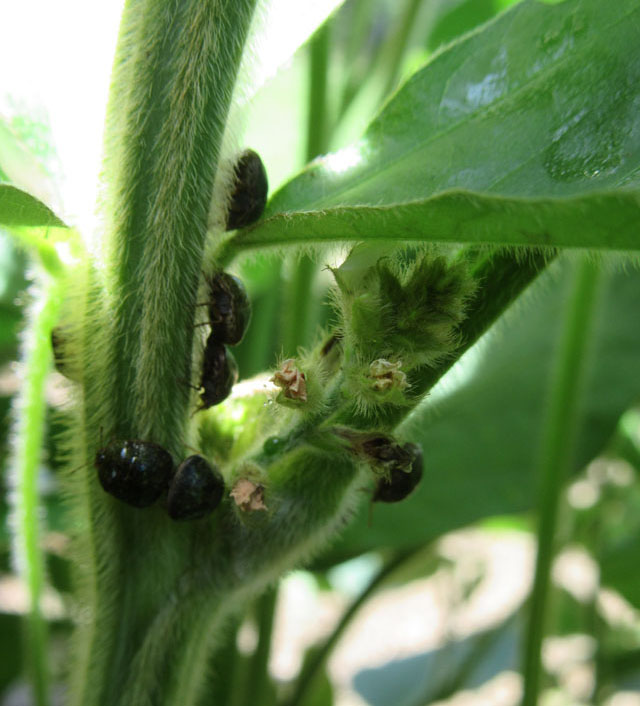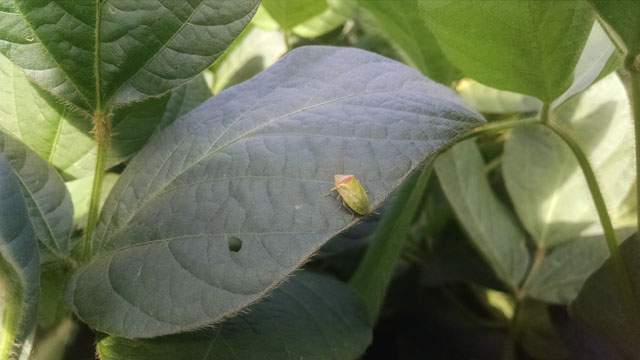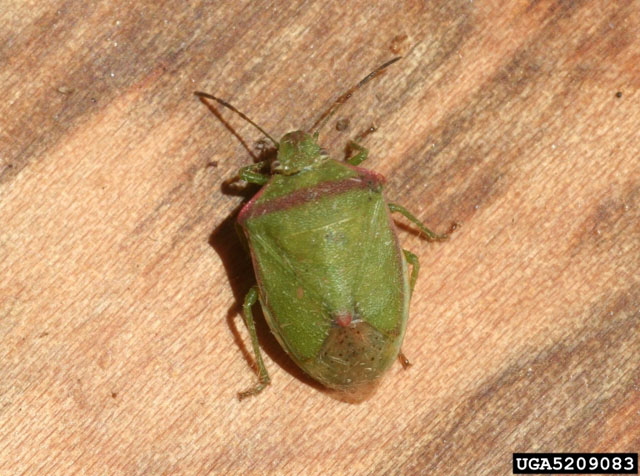After a mild winter, with relatively few nights below freezing, it should be no surprise that insect populations are spiking early. One example of this is armyworms, which began showing up in early-mid June across areas of Jackson County, a pest typically found later in July. In early June, soybean pests have begun to appear in the sentinel plot at the Jackson County Extension Office. The plot was checked for pests at the Scout School on June 8, and aside from beneficial insects, only several brown stink bugs were found.
Kuzu Bugs
By the second week of June (June 13), kudzu bugs had moved in and were found in high numbers along plot edges.
This follows a similar trend, with kudzu bugs returning in higher numbers this year as compared to the last few. Kudzu bugs feed on sap from the plant’s main stem and leaf petioles using their sucking mouth-parts. The complete life cycle from egg to adult can be achieved in as little as six weeks. The past few years, a beneficial fungus (Beauveria bassiana) helped reduce kudzu bug numbers, hopefully that will happen again this year as well.
Scouting fields will allow you to stay current on the population distribution and determine economic thresholds. When scouting, avoid sampling near border/edge rows which tend to be colonized first. Insecticide applications should only be made when populations reach the necessary threshold levels – 1 nymph per sweep. This may be several weeks from the point of initial infestation. Pyrethroids containing bifenthrin work well against these insects.
Redbanded Stinkbug
Another recent pest to show up in the soybean plot at the county Extension office is the redbanded stink bug.
The redbanded stink bug is a key soybean pest in states such as Louisiana and Arkansas, and could be a problem for Florida if it continues to show up in soybean fields. Like other stink bugs, the redbanded uses piercing sucking mouth parts to feed on plant stems, leaves, and pods. That being said, the redbanded stink bug does more damage per individual than any other stink bug species. Growers find they can control southern green and green stink bugs easily enough while the brown stink bugs pose more of a problem, but the redbanded is harder still. There is also a redshouldered stink bug (not a pest) that is similar in appearance to the redbanded, but differs in that the redbanded has an abdominal spine.
The redbanded stink bug also typically has two small black spots on its dorsal (back) side (see image below), whereas the redshouldered stink bug does not.
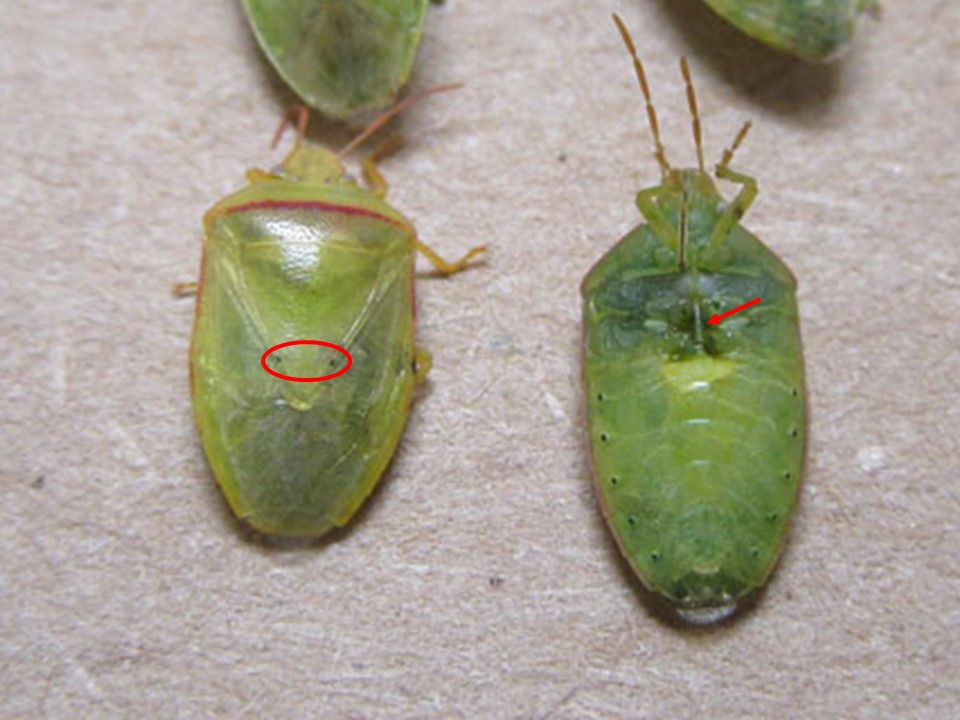
Adult redbanded stink bugs- left side showing two black spots on the dorsal side, right side shows abdominal spine located near where the (removed) legs would join. Photo by Ethan Carter.
The threshold level for redbanded stink bugs used in Alabama for soybeans is 1 per 3ft of row, or 2 per 15 sweeps. While products containing bifenthrin can control brown stink bugs, for the redbanded it is recommended to use the maximum combined rates of bifenthrin and acephate.
For more information or assistance with insect identification, contact your local Extension Office. For control options use the following publication link:
Alabama Soybean Insect, Disease, Nematode, and Weed Control Recommendations for 2017
- 2024 Panhandle Row Crop Short Course Highlights & Presentation Links - March 8, 2024
- 2024 Wiregrass Cover Crop Field Day – Rescheduled – March 29 - February 16, 2024
- Panhandle Row Crop Short Course – March 7 - February 9, 2024

